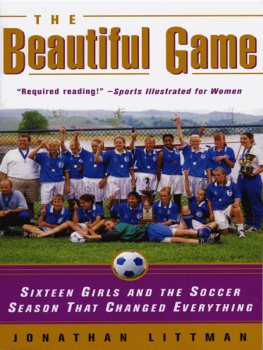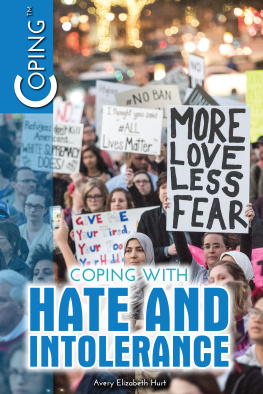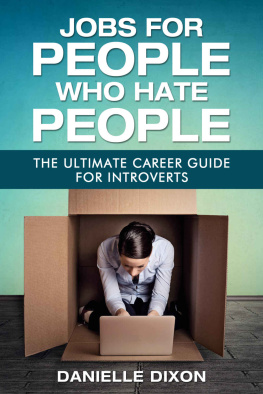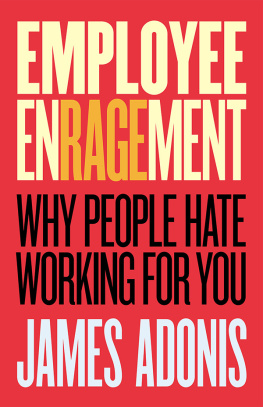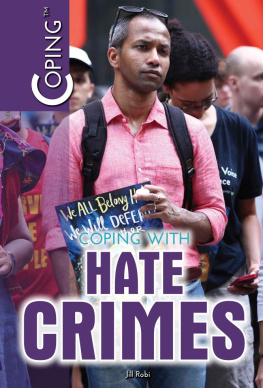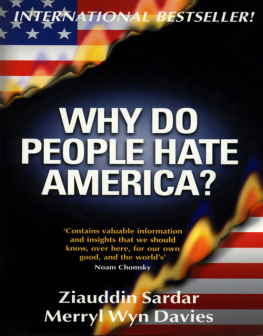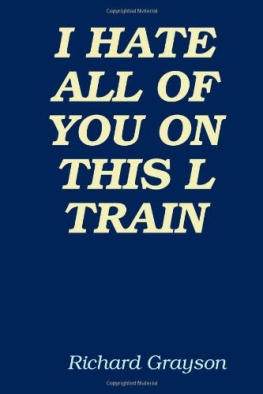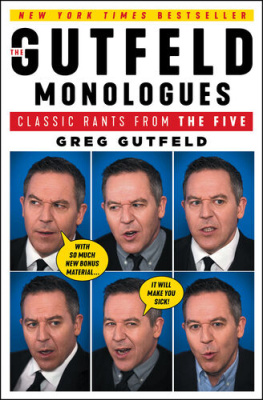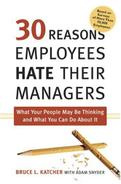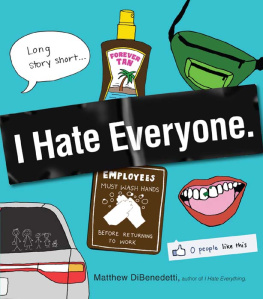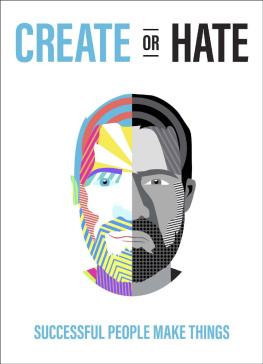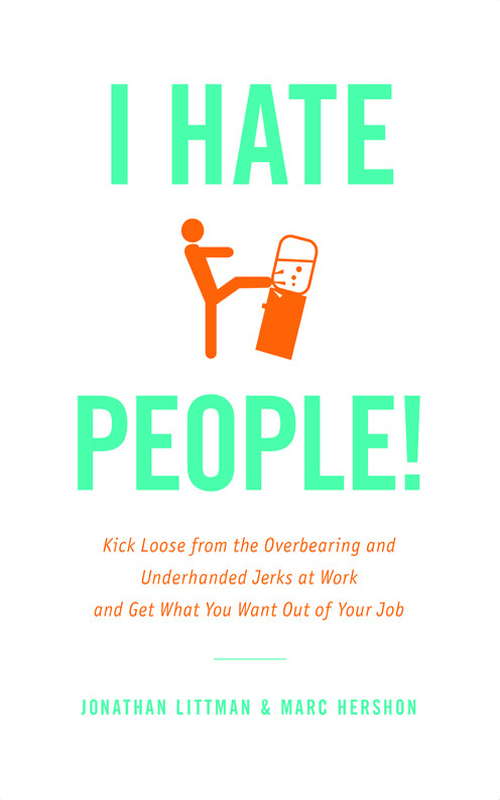Copyright 2009 by Jonathan Littman and Marc Hershon
All rights reserved. Except as permitted under the U.S. Copyright Act of 1976, no part of this publication may be reproduced, distributed, or transmitted in any form or by any means, or stored in a database or retrieval system, without the prior written permission of the publisher.
Little, Brown and Company
Hachette Book Group
237 Park Avenue, New York, NY 10017
Visit our website at www.HachetteBookGroup.com
www.twitter.com/littlebrown
First eBook Edition: June 2009
Little, Brown and Company is a division of Hachette Book Group, Inc. The Little, Brown name and logo are trademarks of Hachette Book Group, Inc.
ISBN: 978-0-316-05338-9
Also by Jonathan Littman
The Ten Faces of Innovation:
IDEOs Strategies for Beating the Devils Advocate & Driving Creativity throughout Your Organization (with Tom Kelley)
We Shall Not Fail:
The Inspiring Leadership of Winston Churchill (with Celia Sandys)
The Art of Innovation:
Lessons in Creativity from IDEO, Americas Leading Design Firm (with Tom Kelley)
The Beautiful Game:
Sixteen Girls and the Soccer Season That Changed Everything
The Fugitive Game:
Online with Kevin Mitnick
Watchman:
The Twisted Life and Crimes of Serial Hacker Kevin Poulsen
Once Upon a Time in ComputerLand:
The Amazing, Billion-Dollar Tale of Bill Millard
For Debra
M.H.
For Elizabeth, Kate, and Sherry
J.L.

I hate people.
Whered we get that idea? We listened. We heard people muttering I hate people whenever things would get stressful. Like, every single day. This is not a new problem, and the evidence suggests its getting worse by the second, thanks to remarkable advances in technology that have had the unintended effect of making it far easier for people to annoy us. The billions of e-mails, v-mails, and text messages sent every day threaten to overwhelm us like a plague of e-locusts.
We hate people who play favorites, people who make the rules, people who dont give others a break. You know who were talking about. The people who lie in the shadows of your meeting, and after youve just made an awesome presentation, stab you with, Excuse me, but have our customers asked for this?
Part of the problem stems from a lack of trust. More than seven out of ten Americans distrust the CEOs of large corporations. Only a third of employees believe that senior management communicates openly and honestly, according to a recent survey by Towers Perrin of ninety thousand workers in eighteen countries; two-thirds believe their bosses cant or wont talk straight. Survey after survey has shown that half of the workforce does not trust its superiors. Recent McKinsey research has revealed that fundamental values of honesty and candor are missing in a growing percentage of companies.
The numbers suggest a crisis one not likely to be solved by organizations or corporations anytime soon. Consider that the federal governments Bureau of Labor Statistics does not even track worker satisfaction.
People are what bring us down, make us scream obscenities in our cars, mutter things under our breath in our cubicles, and shout in the elevator when were alone.
The Perfect Holiday
What were one-third of fifteen hundred British workers willing to do?
Forgo a weeks holiday if they didnt have to work next to people they hated.
Denial has been widespread, but we dont believe its possible to keep a lid on the truth. People are angry and today, theyre a lot less likely to keep quiet about it.
On Facebook, the popular online social network, users have generated an Enemybook option, where People Haters can air their feuds. In mid-2008, the New York Times ran a front-page story about another kind of broken relationship getting headlines. An astonishing number of ex-spouses are furiously trashing their former beloveds on popular blogs on the Internet. The courts are doing little to stem the vilifying, and as the Times reported, The confessions can stretch toward eternity in a steady stream of enraged or despondent postings.
The constraints of the workplace and fear of lawsuits have bottled up similar fury against irritating cubemates and meddling bosses. But despite these roadblocks, we had no trouble finding dozens of blogs and websites that play to our basic frustration at the office sites with names like Anger Central, Disgruntled Workforce, and Team Building Is for Suckers.
These feelings are not a joke. Consider what a former lieutenant commander in the navy told us of his experience working on Wall Street as an investment banker: I was an unmitigated failure. I had no idea how to navigate through these difficult people. One Sunday after Thanksgiving of 2004, I was homicidal. I was going to kill my boss. I was fighting to swim and he had his arms around my neck, strangling me. What makes this story even more striking is that the lieutenant commander prided himself on being a solid leader of 120 men in the military, dedicating himself to his missions in Kosovo, Guam, and Estonia.
Burnout is the common affliction of driven, obsessive professionals. In 21st-century New York, the 60-hour week is considered normal, writes New York magazine. In some professions, its a status symbol. But burnout, for the most part, is considered a sign of weakness, a career killer. Workers dont burn out just because they work too hard. Workers burn out because of people. A classic 1990s management study showed that workers who have frequent intense or emotionally charged interactions with other people are more susceptible to whats referred to as emotional exhaustion.
The past few years many Americans have discovered that a lack of accountability got our country, economy, and institutions into a whole lot of trouble. Regulators were too nice to hedge funds and speculators and Wall Street. Bernie Madoff allegedly ripped off individuals and companies to the tune of $50 billion by pretending to be nice. This isnt the first time this has happened in American business. The Crash of 29 was another case where people werent willing to ask the tough questions. While the first years of the new millennium were defined by this fixation on superficial niceness, we believe were entering a new era. Practical People Hating directed toward those demanding our enmity bankers, Fed chairmen, politicians, and other miscreants who have mucked up our 401ks and fractured our financial infrastructure. A democratic society, built on free trade, has no room for those willing to rig the game and harm millions of people. There are serious consequences for not People Hating enough. Our nation has discovered, in the past decade, how a minority of bad apples can rot not just the rest of the fruit but the barrel as well. The time has come to face reality.
Studies and countless real-life stories clearly demonstrate that people are hating people. Yes, at your very own office. We work too many hours, meet too often, travel too much, and e-mail constantly. Burnout or cowering in your cubicle or office are not viable options.
The Rude Game
89 percent of people say rudeness is a serious problem.
78 percent say its gotten worse in the past ten years.
99 percent of people say they arent rude.
U.S. News & World Report
For those readers wondering whether were serious, a brief note of explanation. We like and sometimes even love individuals. Its people we hate. Many of you may genuinely enjoy the company of your office mates. Theres a reason for that. These are people who fall within the standards and expectations you set for your daily interactions. The men and women whose natural shortcomings are offset by their capabilities and character. The problem with most people is that they rarely bother to belly up to this relationship point. They just stand in your way, annoy, and irritate. At times, facing them can be more than we can stand. As comedian Rich Hall said in Seattle back in the 1980s when he was found hiding in the kitchen of the Comedy Underground after his show one night, I like people. Just not in a group.


